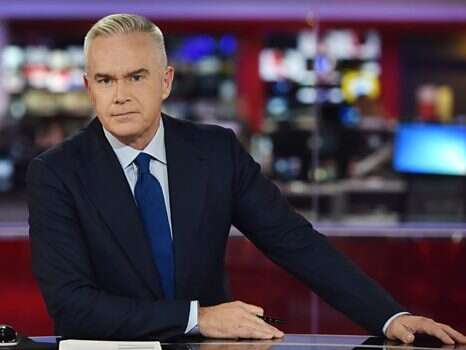
As Culture Secretary Nadine Dorries signalled that the next BBC licence fee announcement will be its last, Press Gazette looks at alternative funding models for the corporation.
Advertising
One of the most frequently floated ideas for BBC reform would be to allow advertising. While it’s hard to estimate just how much the BBC could make from advertising revenues, for context the much smaller ITV made £1.3bn in ad revenue for just the first nine months of 2021.
In Portugal, France and Switzerland state broadcasters are partially funded by advertising.
But for context in both France and Switzerland state broadcasters make as much from advertising (30% of overall revenue) as the BBC makes from its commercial arm.
Plus, whether it would be acceptable to the rest of the UK broadcasting establishment is another matter still. As the biggest broadcaster in the country if the BBC were to become open to advertisers it would eat into the market share of ITV, Channel 4 and others.
Tax
The other obvious way to raise money for the BBC would be through a ring-fenced tax. The suggestions on this have ranged from levies on tech giants like Netflix and Amazon, to a direct flat tax like national insurance or a more earnings-based system.
Some of these proposals could even help resolve the perceived injustice at the heart of the licence fee – as a flat rate many have argued it hits those with the least amount of money more than those who can easily afford to pay it.
In countries like Finland and Sweden for example, licence fees have been ditched for more progressive funding models. In Finland, a public broadcasting tax charges people up to a maximum of €163 a year, staggered based on income. In 2019, Sweden introduced a flat 1% tax up to 1,300 Swedish Kroner a year, or roughly £136 to fund its state broadcaster.
The move could potentially give the BBC certainty over its long-term funding and independence rather than the fraught five-year licence fee negotiations.
The last major policy proposal on the BBC from the Labour Party came from then-leader Jeremy Corbyn in 2018. Corbyn proposed introducing a tax on big technology firms to subsidise the licence fee and give a guaranteed income for the BBC, alongside giving licence fee payers the power to elect members of the BBC’s governing board.
However, most Corbyn-era policies have been disavowed in the Keir Starmer era.
Alternative revenue
Despite the pandemic undermining TV production, nearly 30% of BBC’s £5bn annual income comes from outside ventures, including the selling of content to sites like Netflix, and producing original television through BBC studios.
The broadcaster also owns the entirety of UKTV, the parent company of channels like Dave and Yesterday, jointly owns streaming service BritBox and generates ad revenue from the BBC’s global news programming. Ads and subscriptions generated £474m last year.
Could the BBC invest more in alternative revenue streams as an alternative to the licence fee?
Abolition or austerity
One of the more extreme ideas favoured by right-wing columnists revolves around intensely cutting back what services the BBC offers.
That could see a lot of radio services cut back or privatised, the end of specialist services like the Asian network and BBC iPlayer being reformed into a subscription service. What would be left would either be on a shoestring budget or forced to fund itself independently.
This could turn the BBC into a version of US public broadcaster PBS which, while in the receipt of some government funding, relies on dues from regional member stations and charitable donations to function.
PBS has a far smaller audience footprint than its broadcast competitors in the US.
What are the Tories are planning for the BBC?
When asked in Parliament on Monday what alternative funding model she has in mind for the BBC, Culture Secretary Nadine Dorries said that the government has six years to find one (the end of the current BBC charter period).
Former Conservative government Culture Secretary John Whittingdale has proposed one alternative: a much-reduced government subsidy to fund just core BBC services like news and children’s TV. The rest of the broadcaster’s output would be made an optional extra that could be subscribed to in a similar style to Netflix.
Writing in Press Gazette, former BBC lobby correspondent Leon Hawthorne explained why he thinks the corporation should embrace a more commercial model.
But Whittingdale’s suggestion was called “extremely dangerous” by the National Union of Journalists as they said it would undercut the BBC’s ability to deliver public service broadcasting and journalism at the scale it currently does.
BBC director-general Tim Davie suggested that the BBC could cost as much as £400 a year per person if it shifted to the same kind of model used by streaming giants like Netflix.
Email pged@pressgazette.co.uk to point out mistakes, provide story tips or send in a letter for publication on our "Letters Page" blog
